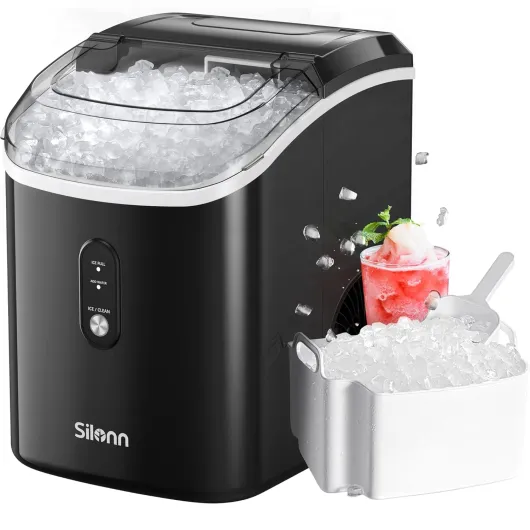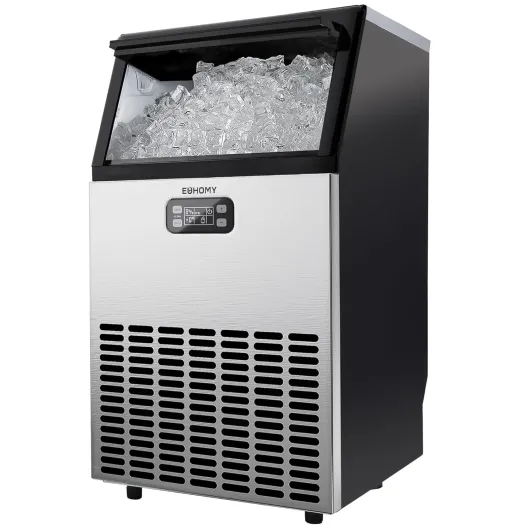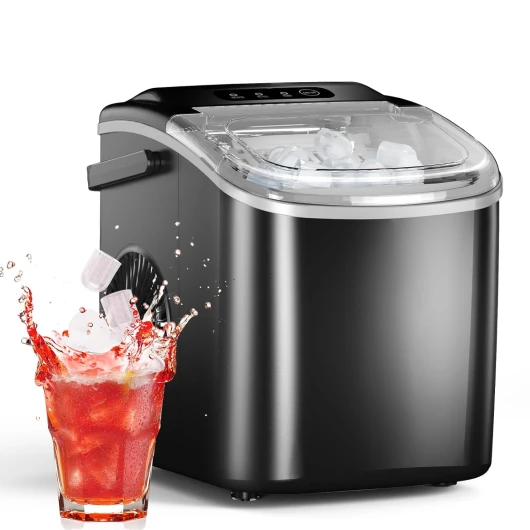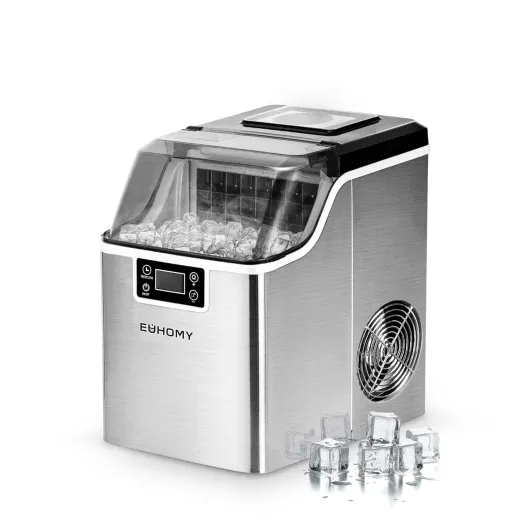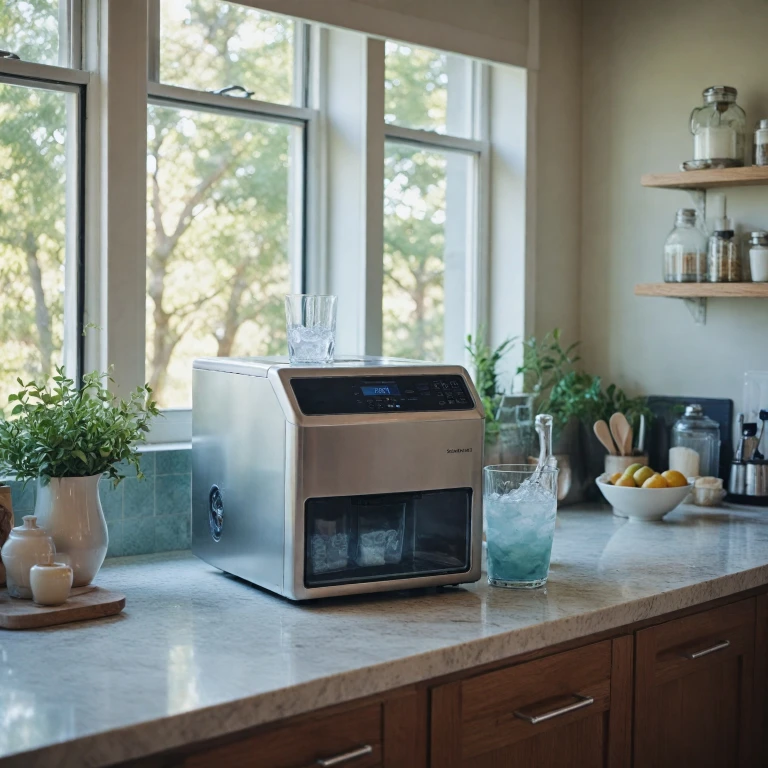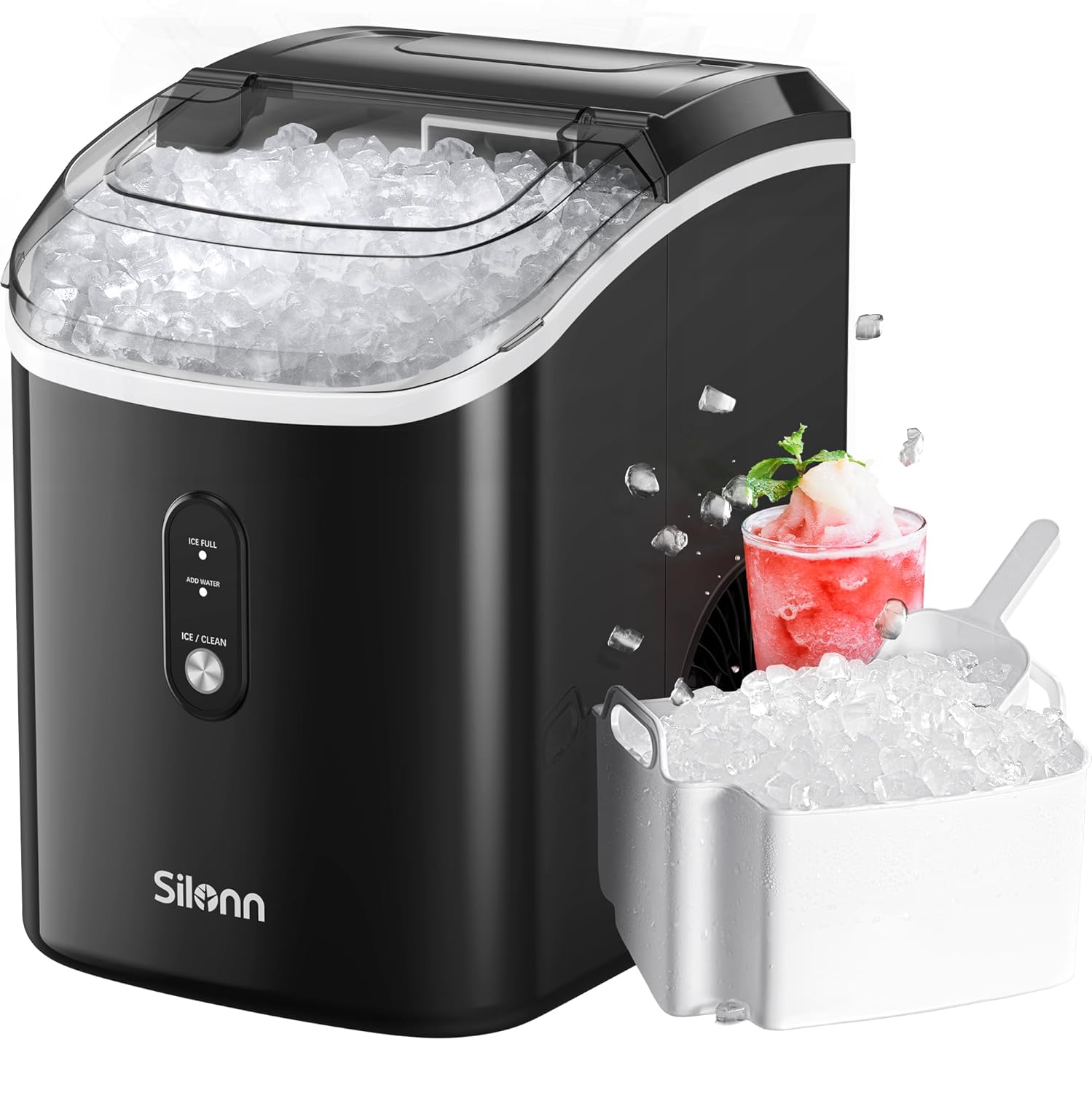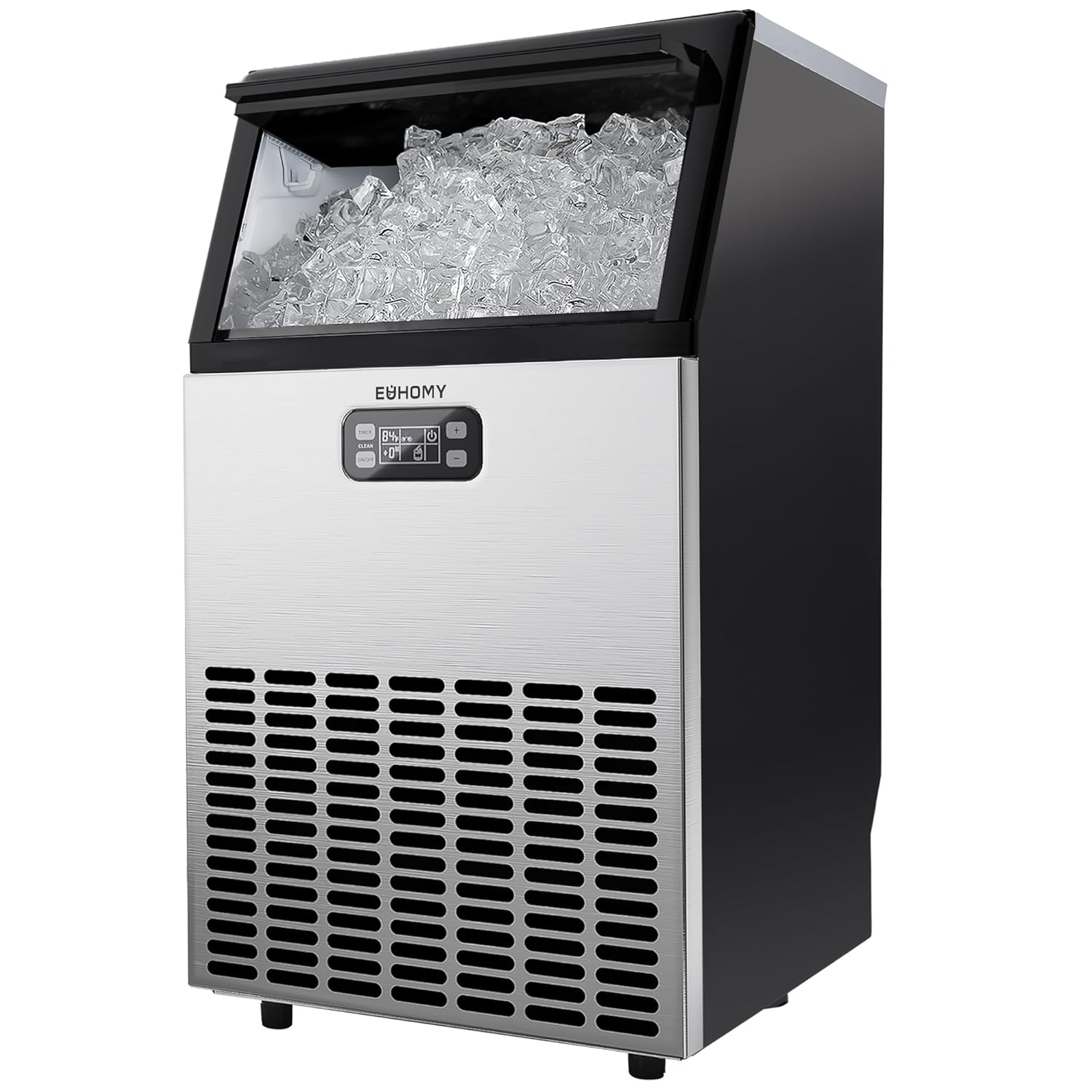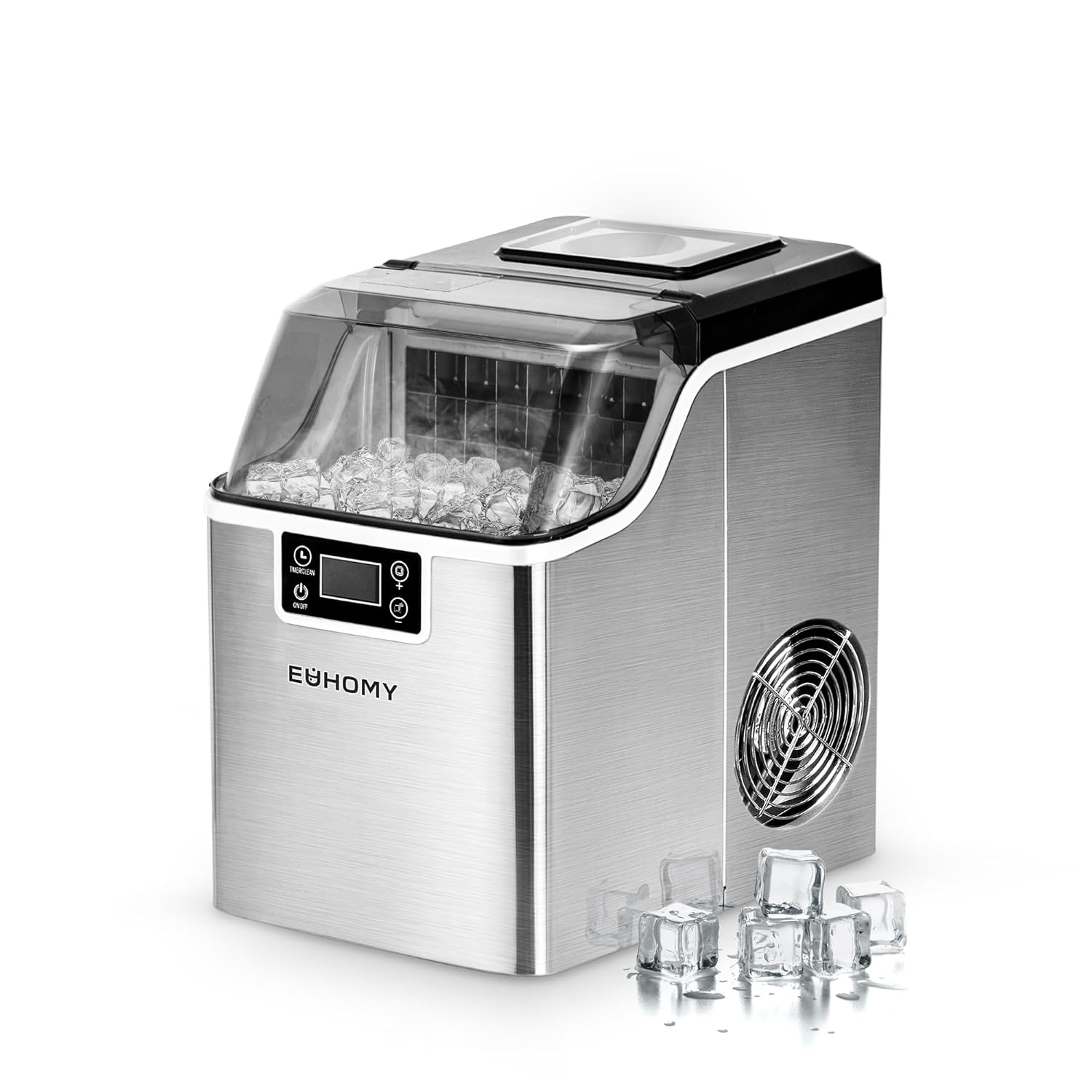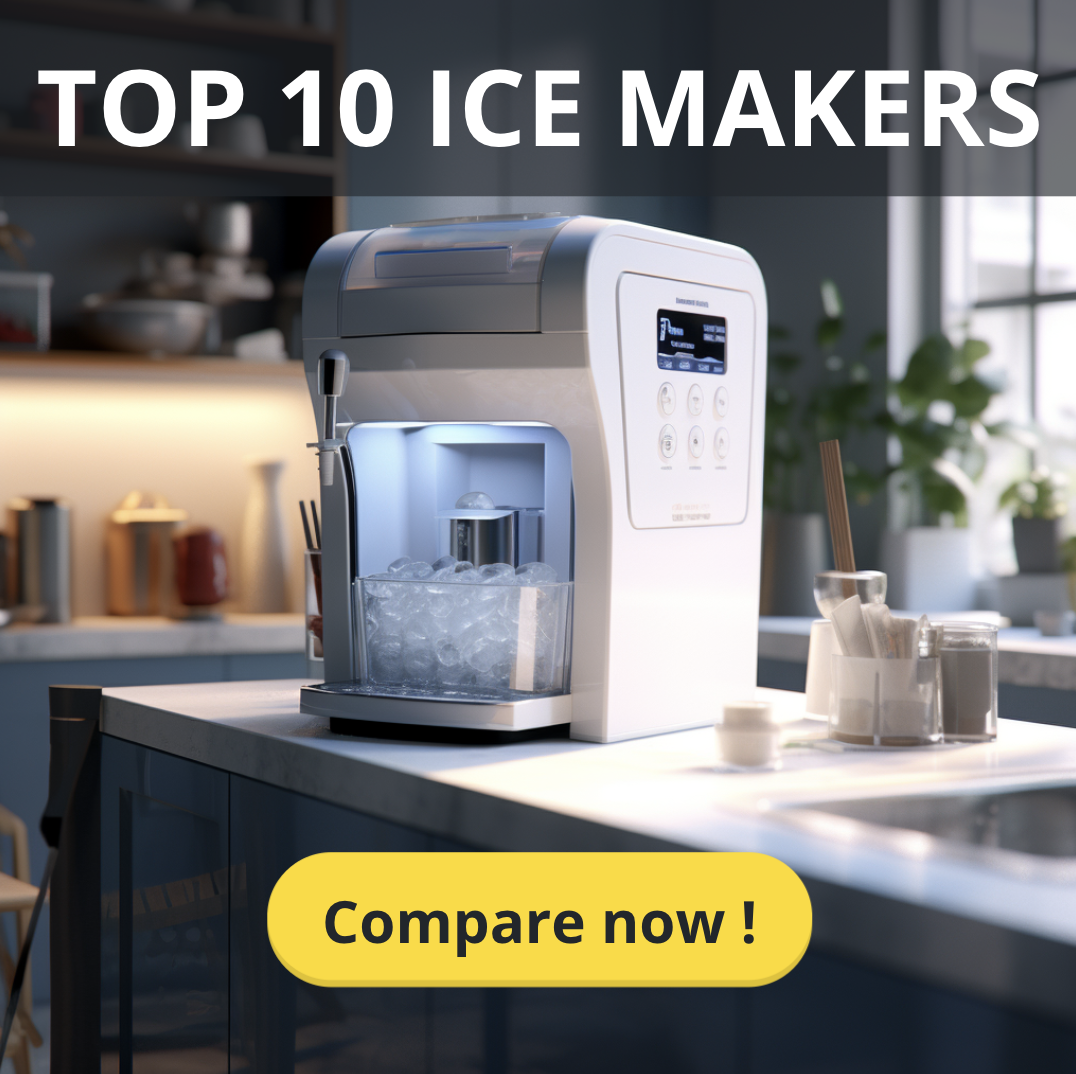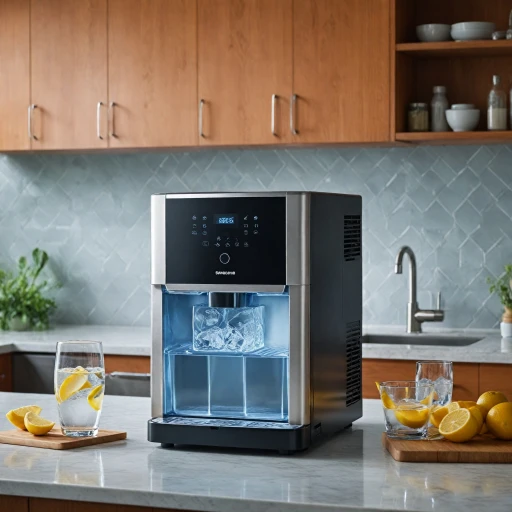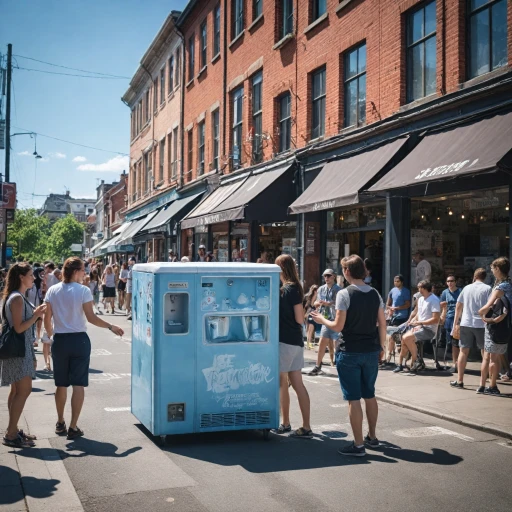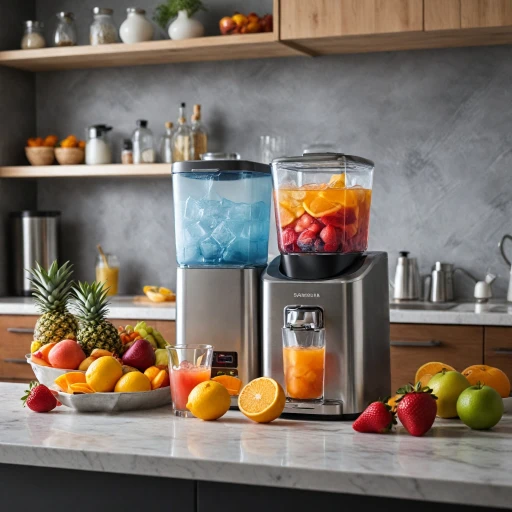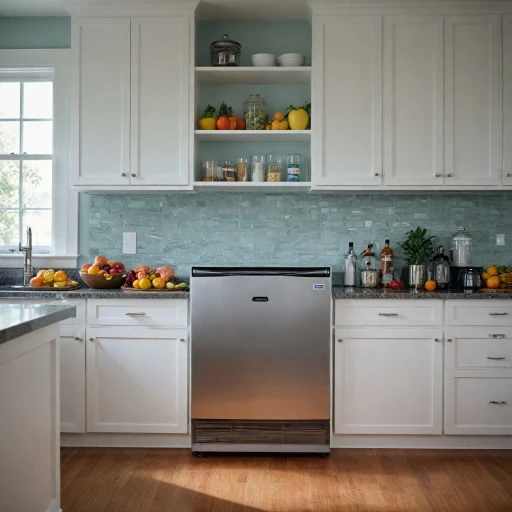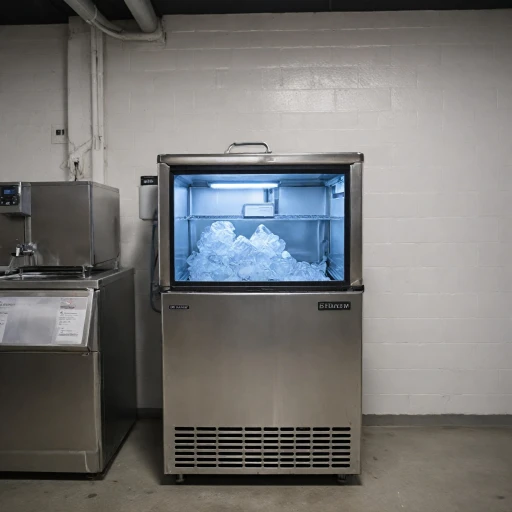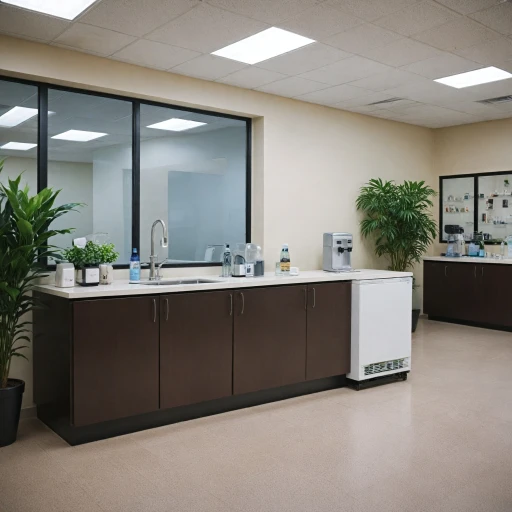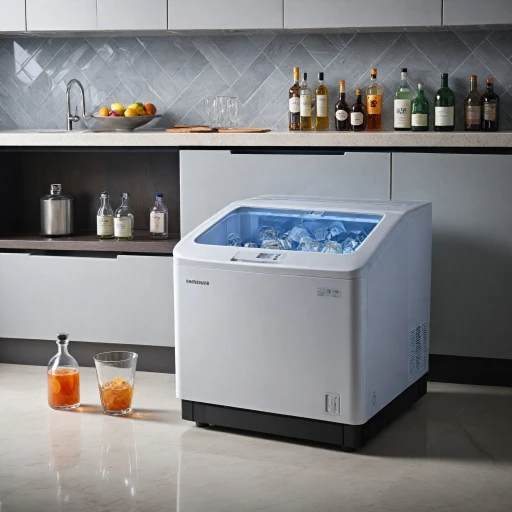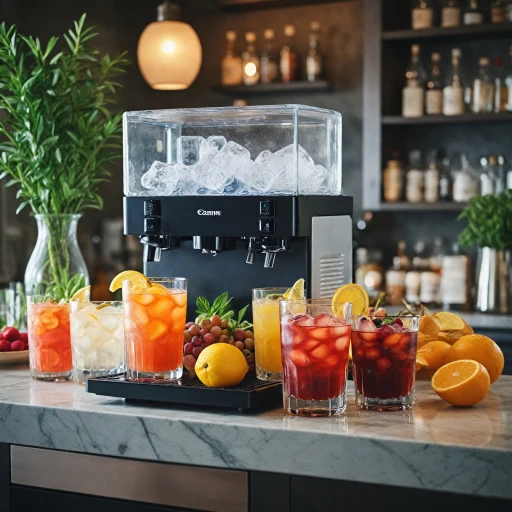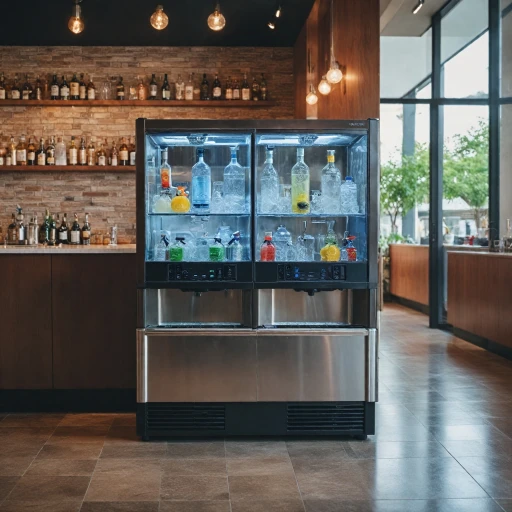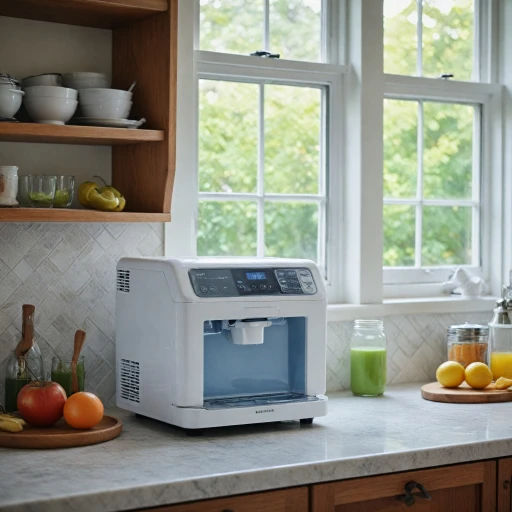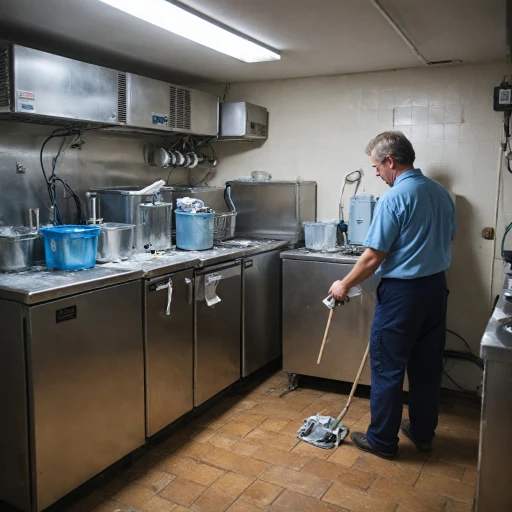
Understanding the Different Types of Large Ice Makers
Exploring Various Large Ice Maker Types
When it comes to large ice makers, there is a diverse range of models tailored to cater to different needs. From commercial settings to more tailored personal use, understanding these types can help you make an informed decision.- Commercial Ice Machines: These are designed for high capacity ice production, perfect for businesses requiring a constant ice supply. They typically produce either cube, nugget, or flake ice.
- Countertop Ice Makers: Ideal for smaller spaces, these machines provide convenience and efficiency. Features like stainless steel finishes and compact designs make them popular for homes with limited space.
- Modular Ice Machines: Known for flexibility, these machines allow you to choose a different ice storage bin size according to your needs. They are perfect if you anticipate changes in ice demand.
- Undercounter Ice Machines: Combining size and efficiency, these machines save space by fitting under countertops. They are suitable for bars or small restaurants needing moderate ice output.
Key Features to Look for in a Large Ice Maker
Essential Factors in Selecting a Large Ice Maker
When choosing the right large ice maker for your needs, it's crucial to focus on key features that directly impact performance and suitability. These features not only help in determining the machine's capability but also its efficiency over time.
Types of Ice Production
- Nugget Ice: Known for its chewable texture, nugget ice is popular in commercial settings, especially where beverages with ice like cocktails are served frequently.
- Clear Ice: This type of ice is favored for its aesthetic appeal and slower melting properties, making it ideal for upscale settings.
- Cube Ice: Available in full dice and half dice forms, cube ice is versatile and universally used in various environments.
- Bullet Ice: Characterized by its cylindrical shape, bullet ice is commonly produced by countertop models.
Production Capacity and Speed
Consider how much ice you need over an average day. Large ice makers can produce anywhere from 150 lbs to over 300 lbs of ice per day. Understanding your requirement helps in selecting a model that aligns with your ice demand without overspending.
Storage and Size Considerations
Adequate ice storage is crucial. Look for a machine with a sufficient bin capacity that matches your production needs to avoid ice shortage or excess. Also, ensure the ice maker's dimensions fit your available space, especially if you're considering a countertop ice model.
Material and Cooling System
Stainless steel construction is prevalent in high-quality models for durability and easy cleaning. Furthermore, opting for air-cooled machines can contribute to energy efficiency, but make sure the area has enough ventilation.
Additional Features
- Smart Controls: Some models feature advanced controls for monitoring ice production and ease of use.
- Maintenance Indicators: Indicators for cleaning and maintenance are significant to reduce downtime and uphold hygiene standards.
- Energy Efficiency: Consider models that are energy-efficient as they will save you money in the long run.
For more detailed insights on elevating your beverage service with an ice machine that meets your specific needs, check out our guide on enhancing your refreshments with a superior ice machine.
Installation and Maintenance Tips
Setting Up and Maintaining Your Ice Machine
When it comes to installing a large ice maker, proper placement is crucial to ensure optimal performance and longevity. Whether you're installing a countertop ice maker or a more robust commercial ice machine, consider the following tips:
- Choose the Right Location: Your ice maker should be positioned in a well-ventilated space, away from direct sunlight and extreme temperatures. This will help maintain consistent performance, especially for air-cooled models.
- Access to Water Supply: Ensure the machine is near a suitable water source for easy connection. Many models require a direct water line to produce clear, quality ice cubes.
- Power Requirements: Verify that there is an electrical outlet nearby that matches the ice maker's power specifications. This is critical for maintaining the machine's efficiency.
- Drainage Setup: Proper drainage is essential, especially for commercial ice makers, to prevent water accumulation and potential damage.
Regular maintenance plays a key role in the longevity of your ice maker. Here are some routine tasks to help keep your ice machine running smoothly:
- Cleaning the Interior and Exterior: Regularly clean the ice bin and outer surfaces with a mild detergent to prevent the buildup of mold and bacteria, especially when dealing with ice cubes meant for consumption.
- Descaling: Periodically descale your ice maker to remove mineral deposits that can interfere with operation, particularly in areas with hard water.
- Filter Replacement: For models equipped with water filters, timely replacement according to the manufacturer's recommendations ensures high-quality ice production.
- Inspect for Wear and Tear: Regularly inspect the machine for signs of wear, such as cracked tubes or damaged seals, and address them promptly to prevent larger issues.
In the event of a malfunction, it's important to have a reliable solution on hand. For more comprehensive troubleshooting or repair needs, consider finding reliable commercial ice machine repair services nearby to ensure your ice maker is up and running quickly.
Comparing Popular Large Ice Maker Brands
Popular Brands and Their Features
When delving into the world of commercial ice machines, several brands stand out for their excellence and innovation. Here’s a look at some leading brands, highlighting their key features and benefits to help inform your decision for the right ice maker:- Manitowoc: Known for their reliable and durable ice machines, Manitowoc offers models that excel in clear ice and cube ice production. Many units come with air cooled mechanisms, making them energy-efficient. Manitowoc machines are particularly favored in high-demand settings due to their robust construction and consistent ice output.
- Scotsman: If nugget ice is on your wishlist, Scotsman might be your best bet. Celebrated for their precise engineering, these machines produce soft, chewable bullet ice that's ideal for beverages. Scotsman units often come equipped with modern features like stainless steel exteriors and smart control panels.
- Hoshizaki: With a reputation for high-quality ice cubes, Hoshizaki ice makers excel in producing full dice and half dice ice cubes. Many models feature antimicrobial protection and innovative ice water cleaning systems that bolster hygienic standards.
- ICE-O-Matic: These ice makers offer competitive price points and are particularly known for their ease of installation and maintenance. They provide countertop ice machine options that are perfect for casual environments or smaller businesses.
Considerations When Choosing a Brand
When evaluating ice machines from these brands, consider a few key aspects:- Price and Value: Look for a balance between cost and the features offered. Often, a higher price reflects additional capacities or advanced technology.
- Production Capacity: Match the ice maker capacity (measured in lbs/day) to your needs. Determine if you need full-day productivity for large venues or lower output for smaller setups.
- Ratings and Reviews: Check rated stars on platforms like Amazon for user reviews and real-world performance insights.
- Storage Options: Ensure the ice bin fits your storage needs, providing enough space to store your ice cubes until needed.
Budgeting for Your Large Ice Maker Purchase
Evaluating the Financial Aspect of Ice Maker Purchases
When determining the right large ice maker for your needs, budgeting is an essential part of the decision-making process. Ice machines can vary widely in price, influenced by their type, capacity, and features.- Initial Cost vs. Long-term Investment: While the initial price of an ice machine, such as countertop models or commercial ice makers, can be significant, you must also consider the long-term investment. A reliable machine like Manitowoc, known for its durability and efficiency, could reduce ongoing costs and lower the price per ice cube over time.
- Capacity and Production: Evaluate your ice demand, often measured in lbs per day. Machines with higher production capabilities generally cost more upfront but are vital for businesses requiring a constant supply of bullet ice or nugget ice.
- Energy Efficiency: Air cooled ice makers and machines with energy-saving features might have a higher purchase price but can result in savings on utility bills. Additionally, ice machines that produce clear ice or half dice efficiently are often rated with higher stars for energy use.
- Maintenance and Repairs: It's wise to factor in the potential cost of maintenance and repairs. Regular upkeep ensures your machine runs smoothly and prolongs its lifespan. Stainless steel models typically require fewer repairs and contribute to a lower overall cost.
- Additional Features: Consider if additional features like a larger ice storage bin or options for full dice, and ice water affect the price. These might be crucial for your specific needs and worth the extra investment.
Troubleshooting Common Issues with Large Ice Makers
Resolving Common Challenges
When it comes to using large ice makers, understanding how to troubleshoot common issues can save you time and money. Even with top-rated commercial ice machines, operational hiccups can arise. Here’s a guide to address some frequent problems with your ice makers.- Ice Maker Not Making Ice: One of the most common issues is the ice machine not producing ice cubes. First, check the water supply; ensure that the water line is open and free of blockages. It's also wise to examine the filter and replace it if necessary since clogged filters can impede water flow.
- Ice Machine Producing Low-Quality Ice: If your machine is making cloudy ice instead of clear ice, the problem might be in the water quality or the freezing cycle. Consider installing a water softener to improve water purity. Additionally, verify that the freezer coils are clean and the temperature settings are optimal.
- Unusual Noises or Vibrations: Ice machines, like those with the air-cooled feature, should operate with minimal noise. If you hear loud noises, inspect for loose parts or worn-out fans. Tightening screws and regular maintenance can prevent these issues.
- Ice Machine Leaking Water: Water leaks can occur due to a dysfunctional seal or broken pipe. Inspect the water inlet valve and seals; replace any damaged components to prevent water wastage and potential machine damage.

